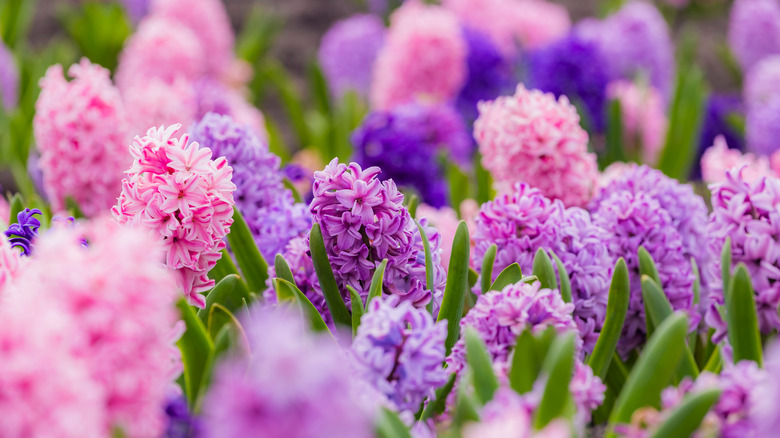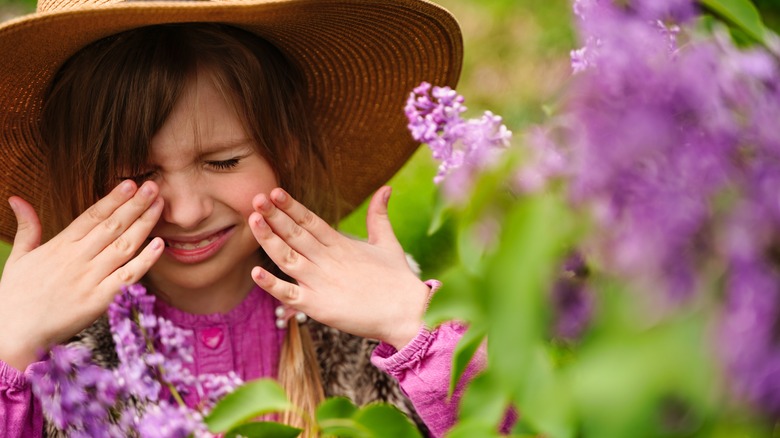Are Hyacinths Safe To Plant If You Have Kids And Pets?
Gardening is not just about nurturing our favorite flora; it also entails creating a harmonious space where both nature and our loved ones can thrive, including children and pets. When planning our gardens, we often seek the perfect balance between aesthetics and safety. Hyacinths, with their many vibrant colors and sweet fragrance, can be a wonderful addition to any garden. However, they present a unique dilemma for people with kids and pets: they are toxic to people and animals.
Hyacinth flowers are known for their captivating beauty, bringing a burst of color and a heady scent to a garden, and making springtime a sensory delight. Their ease of care and versatility in various garden settings make them a favorite among homeowners. However, the enchantingly beautiful hyacinths conceal a potentially hazardous substance. These lovely blooms contain glycosides, particularly the antinutrient oxalate, also known as oxalic acid. Ingesting any part of the hyacinth, be it the bulb, leaves, or flowers, can lead to various degrees of toxicity in both humans and pet animals, such as dogs, cats, and horses. You'll definitely want to avoid planting this flower, especially if you have very small children who are curious, and likely to touch and put things in their mouth.
Symptoms of hyacinth poisoning
For humans, contact with hyacinth sap or bulbs may result in skin rashes or irritation. Ingestion can lead to gastrointestinal distress, including common symptoms like nausea, vomiting, diarrhea, and abdominal pain. Chewing on hyacinth leaves or bulbs can also cause irritation and swelling of the mouth, lips, and tongue. Alternatively, inhaling the flower's pollen can lead to sneezing, coughing, and respiratory discomfort. In severe cases, hyacinth poisoning can cause internal bleeding, coma, and even death. Similar symptoms can be observed in companion animals like dogs and cats that have been exposed to hyacinths. Should you suspect that your child, a pet, or wildlife has ingested or come into contact with hyacinth, it's vital to seek prompt medical or veterinary attention or help from your local wildlife specialist or rehabilitator.
While hyacinths are undoubtedly lovely, gardeners with children and pets should weigh the risks carefully. If you choose to include them in your garden, place them in areas that are inaccessible to curious little hands or paws. Better yet, opt for non-toxic plant varieties to ensure a safe and beautiful garden for everyone to enjoy.

